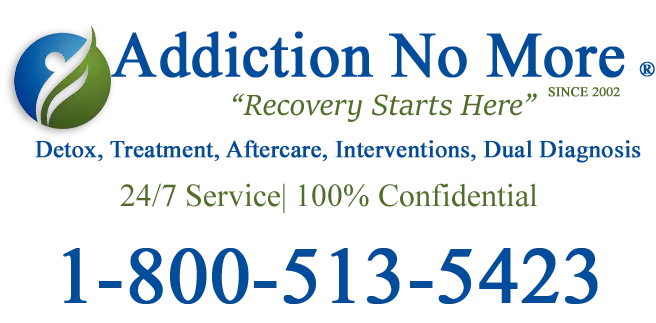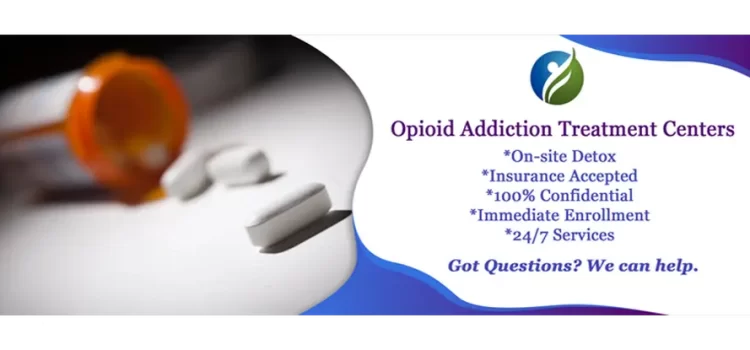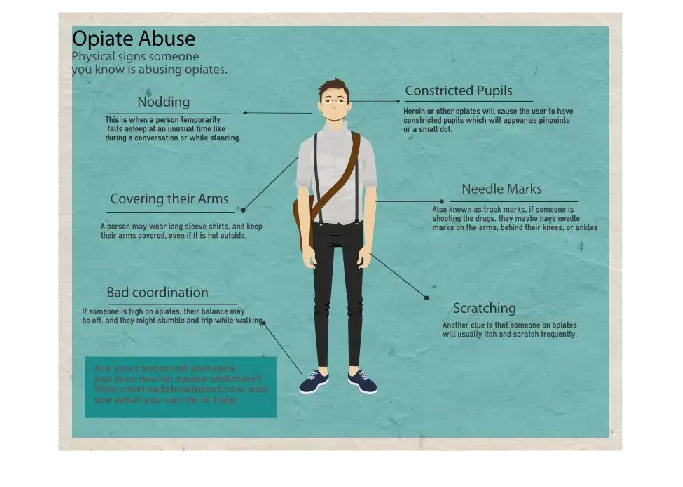Opioid Addiction Treatment Centers
Opioid addiction is a chronic medical condition (a disease or condition that lasts for at least three months and may worsen over time). Prolonged use of opiates can create long-term changes in your brain. Getting help from an inpatient treatment center can help you avoid some of the long-term health conditions associated with addiction to opioids. It can often take much more than willpower alone to break free of prescription drug misuse, but you can escape the cycle of detox and relapse. It may be a long-term process, but medications and counseling can improve your chances of success. Heroin and street fentanyl are also opioids, and addiction to them is treated similarly to prescription drug addiction.Abusers of opioids are shifting to using heroin as there is more availability of the drug on the street. It has become increasingly harder to abuse pill-form opioids due to cost constraints and availability on the streets. Following the abuse-deterrent formulation of Oxycontin, making it more difficult to find on the street, abusers have little choice but to stay away from withdrawal symptoms and to cross over to the more readily available and cheaper drug, heroin. The availability of heroin over the last 2 years, 2014 -2015, has shown that there is a rise in the crossover addiction trends. Mainly due in part to the expense associated with maintaining an opioid addiction vs almost 1/3 of the cost of using heroin for the same purpose. There has been a noticeable rise in heroin overdoses and a significant decline in prescription overdoses for the same period, 2014-2015.
If you have found yourself in the grips of opioid addiction, do not wait to get help. If you have no idea where to start when researching all the available options for opiate addiction, call us today. You do not want to find yourself in a rehab center that is not fully equipped to handle the complexity of opioid addiction. Receiving specialized treatment for opioid addiction will better your chances for long-lasting recovery.
Please give us a call to start the process of getting help for opiate dependence today. Do not try to stop your medications on your own. Some medication withdrawal and detoxification can be life-threatening. We will make sure that your detox is done safely and medically supervised.
1-800-513-5423
What you will learn:
What is opioid use disorder (OUD)?
Signs and symptoms of OUD
What Are Opioids or Opiates?
List of Common Opiates
What are Opiates Prescribed For?
Co-occurring Disorders
Opiate Treatment and Detoxification
How We Can Help
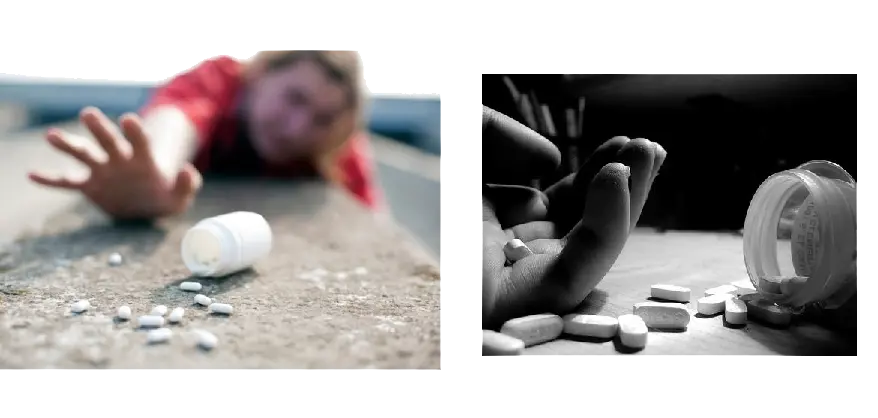
Opioid use disorder (OUD) means that you have a problematic pattern of using opioids. The pattern causes a lot of distress and impairment (meaning that it causes problems in and interferes with your daily life). Instead of OUD, sometimes people use the terms “opioid dependence” and “opioid addiction.” Dependence means feeling withdrawal symptoms when not taking the drug. Addiction is a chronic brain disease that causes a person to compulsively seek out drugs, even though they cause harm.
The risk of OUD is higher if you misuse the medicines. Misuse can include taking more than your prescribed dose or taking it more often, using it to get high, or taking someone else’s opioids.
Opioid use disorder and overdoses are serious public health problems in the United States. As more people misuse opioids, more women are misusing opioids during pregnancy. This can lead to health risks for the mother and baby. The baby may be born with neonatal abstinence syndrome (NAS). NAS is a group of withdrawal symptoms that a baby has after being exposed to drugs during pregnancy.
Another problem with increased opioid misuse is that it can also lead to more heroin use. There are some people who switch from prescription opioids to heroin because heroin may be cheaper and easier to get.
For someone to continue using despite knowing that the addiction is worsening is an underlying psychological problem.
*Anxiety
*Poor judgment
*Confusion
*Memory problems
*Poor concentration
*Inability to plan
*Euphoria
What are Opiates Prescribed For?
Co-occurring Disorders
Opiate Treatment and Detoxification
How We Can Help

What is opioid use disorder (OUD)?
Opioid use disorder (OUD) means that you have a problematic pattern of using opioids. The pattern causes a lot of distress and impairment (meaning that it causes problems in and interferes with your daily life). Instead of OUD, sometimes people use the terms “opioid dependence” and “opioid addiction.” Dependence means feeling withdrawal symptoms when not taking the drug. Addiction is a chronic brain disease that causes a person to compulsively seek out drugs, even though they cause harm.
The risk of OUD is higher if you misuse the medicines. Misuse can include taking more than your prescribed dose or taking it more often, using it to get high, or taking someone else’s opioids.
Opioid use disorder and overdoses are serious public health problems in the United States. As more people misuse opioids, more women are misusing opioids during pregnancy. This can lead to health risks for the mother and baby. The baby may be born with neonatal abstinence syndrome (NAS). NAS is a group of withdrawal symptoms that a baby has after being exposed to drugs during pregnancy.
Another problem with increased opioid misuse is that it can also lead to more heroin use. There are some people who switch from prescription opioids to heroin because heroin may be cheaper and easier to get.
Signs and symptoms of OUD
For someone to continue using despite knowing that the addiction is worsening is an underlying psychological problem.
*Anxiety
*Poor judgment
*Confusion
*Memory problems
*Poor concentration
*Inability to plan
*Euphoria
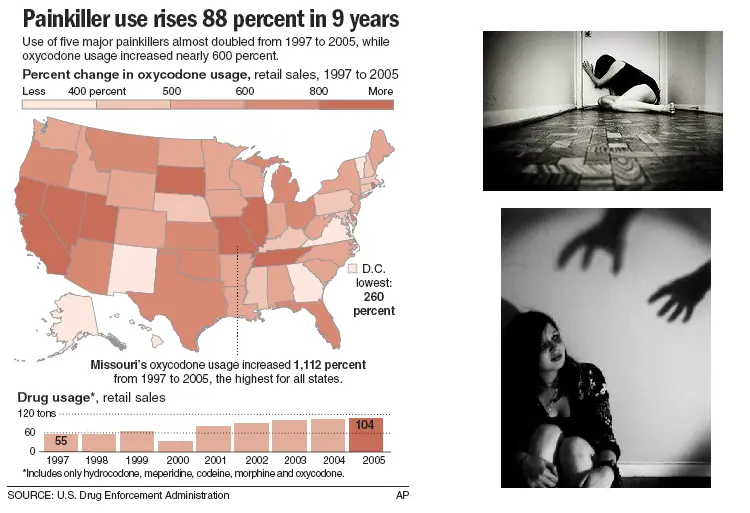
What Are Opioids or Opiates?
Opiates are drugs derived from opium. At one time, “opioids” referred to synthetic opiates only (drugs created to emulate opium, however different chemically). Now, the term Opioid is used for the entire family of opiates, including natural, synthetic, and semi-synthetic. The scope of abuse and the availability of opioid-based drugs has skyrocketed out of control in recent years. There have been drastic increases in the number of prescriptions written and dispensed in the United States, partly due to the social acceptance of people who use medications for different conditions and partly due to the aggressive ad campaigns and marketing strategies deployed by pharmaceutical companies. This has laid the foundation that created a broad availability of prescription drugs in general and opioid analgesics.List of Common Opiates
These are some of the common opiates and their generic names. They are listed in order of increasing strength.
*Codeine*Vicodin (Hydrocodone)
*MS Contin Kadian (Morphine)
*Oxycontin, Percocet (Oxycodone)
*Dilaudid (Hydromorphone)
*Duragesic (Fentanyl)
The number of opioid prescription medications dispensed in 1991 was over 71 million and peaked at 219 million in 2011 due to pain management clinics closing in Florida and around the country. The prescriptions dispensed in 2013 showed a steady decline to 207 million. The United States accounts for almost 100% of the Hydrocodone world total and about 81% of the world’s supply of Oxycodone. The availability of opiate prescription drugs has had several negative impacts on society. The negative consequences of opioid abuse include increases in medical intervention due to non-medical opioid abuse, increasing from 144,600 in 2004 to a staggering 305,900 intakes in 2008. Opioids were listed more often than heroin or cocaine as the cause of death by 2002 and have more than tripled in the last 20 years.
The US is in the midst of an opioid overdose epidemic. Physical and psychological reliance on opioids, a substance found in certain prescription pain medications and illegal drugs like heroin.
Opioids are prescribed to treat pain. With prolonged use, pain-relieving effects may lessen, and pain can become worse. In addition, the body can develop dependence. Opioid dependence causes withdrawal symptoms, which makes it difficult to stop taking them. Addiction occurs when dependence interferes with daily life. Taking more than the prescribed amount or using illegal opioids like heroin may result in death. Symptoms of addiction include uncontrollable cravings and inability to control opioid use even though it’s having negative effects on personal relationships or finances. Treatment varies but may include discontinuing the drug. Medications such as methadone can help alleviate the symptoms of withdrawal and cravings. Pairing medication with inpatient or support programs generally has the most success. SOURCE
If you or someone you know needs help, effective treatment is available and can save lives.
1-800-513-5423
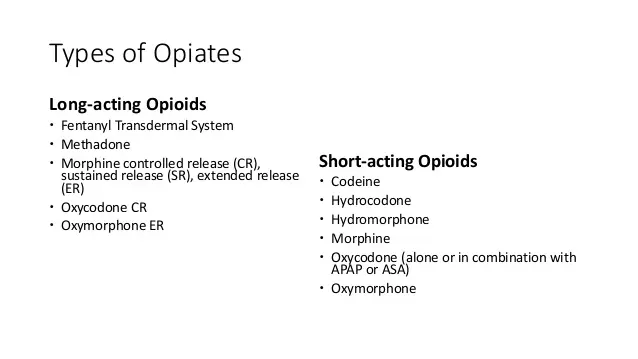
What are Opiates Prescribed For?
Opioids are usually prescribed to relieve some sort of pain, from moderate to severe. The most commonly prescribed pain medications are Vicodin and Oxycodone. These drugs can come in varying dosages and names depending on the manufacturer. They act on the opioid receptors, which can be found on the nerve cells in the brain, spinal cord, gastric intestinal tract, and other organs in the body. When you introduce these drugs into the bloodstream, they attach themselves to the receptors throughout the body to give us relief from pain and a sense of well-being. There can be mild to severe side effects, and the most commonly reported were itching, nausea, drowsiness, mental confusion, and constipation.
Due to the properties of opioids, many people will have a tendency, over time, to build up a tolerance to the drug being taken. Tolerance can occur when a person no longer responds to the medication they are taking, the same as they did before, leading the person to take more of the drug to induce the same desired effect. Tolerance can lead to overdoses, usually after a period of abstinence, then trying to use the same amount as they used to, with a tolerance. As time went on, their tolerance changed or reverted back to a lower tolerance, leading to overdoses. The combined use of opioids and benzodiazepines can cause a fatal overdose scenario, especially if mixed with alcohol. Although more men die from prescription drug overdoses than women, deaths from opioids have increased 5 times between the years 1999 and 2010 for women and 3.5 times for men in the same years.

Due to the properties of opioids, many people will have a tendency, over time, to build up a tolerance to the drug being taken. Tolerance can occur when a person no longer responds to the medication they are taking, the same as they did before, leading the person to take more of the drug to induce the same desired effect. Tolerance can lead to overdoses, usually after a period of abstinence, then trying to use the same amount as they used to, with a tolerance. As time went on, their tolerance changed or reverted back to a lower tolerance, leading to overdoses. The combined use of opioids and benzodiazepines can cause a fatal overdose scenario, especially if mixed with alcohol. Although more men die from prescription drug overdoses than women, deaths from opioids have increased 5 times between the years 1999 and 2010 for women and 3.5 times for men in the same years.

Co-occurring Disorders
Some people who develop an opioid addiction can experience other mental and physical conditions alongside the dependency issue. Over 40% of people who are diagnosed with opioid addiction have an underlying mental condition or substance abuse-related disorder. People who inject opioids make themselves more susceptible to co-occurring medical conditions, including viral ailments and infections like HIV, hepatitis C and B or, a bacterial infection.
The most common of these types of disorders are:
*Depressive disorderThe most common of these types of disorders are:
*Insomnia
*Antisocial personality disorder
*Post-traumatic stress disorder
*Anxiety
*Bipolar disorder
*Dysthymia
*Benzodiazepine abuse
*Stimulant abuse
*Alcohol abuse
*Marijuana abuse

Opiate Treatment and Detoxification
Opioid addiction treatment programs will usually require some sort of medically assisted detox. The level of abuse and the types of drugs being abused will be determining factors in deciding what type of medication will be best to handle the withdrawal symptoms. Making sure to take into account all the drugs that are being abused will give the detoxification doctors and nurses a good idea as to the duration of time needed to safely detox from the abused opioids.
Recent improvements in detoxification protocols have laid the groundwork for anesthesia-assisted rapid detox. Rapidly flushing the drug of abuse out of the system and inducing withdrawal symptoms while being put to sleep makes the detox process take much less time than a medical detox. Detox is in no way a treatment for opioid addiction. It is just the first step in a long process of learning and applying what you have learned in order to remain abstinent from the drug. This is done through therapy and activities that promote a healthy lifestyle.
Working with an addiction specialist will help you find the right solution to the opioid addiction that has a grip on your life. Recovery from an opioid addiction starts with detox and therapy, and for some cases, there may be a maintenance drug prescribed to help handle the cravings and stabilize the individual so treatment can be done without interruption. It is sometimes beneficial for the client to go to treatment further away from home. Getting away from temptations and friends who may still be using is often better for many people. Clients who go to rehab in another state also have a harder time leaving treatment early as well. Depending on the situation, our counselors may suggest looking for substance abuse programs that are a plane flight away.
When involved in a 12-step program or any support group or system, be sure to:
*Learn relapse prevention and the early warning signs.
*Make sure to take your recovery one day at a time.
*Set reasonable goals and expectations to ensure that you feel progression, not regression.
Working with an addiction specialist will help you find the right solution to the opioid addiction that has a grip on your life. Recovery from an opioid addiction starts with detox and therapy, and for some cases, there may be a maintenance drug prescribed to help handle the cravings and stabilize the individual so treatment can be done without interruption. It is sometimes beneficial for the client to go to treatment further away from home. Getting away from temptations and friends who may still be using is often better for many people. Clients who go to rehab in another state also have a harder time leaving treatment early as well. Depending on the situation, our counselors may suggest looking for substance abuse programs that are a plane flight away.
After you are finished with your rehabilitation program, make sure you have a good support group. There are many benefits of getting support from peers in a group setting.
When involved in a 12-step program or any support group or system, be sure to:
*Avoid high-risk areas and situations.
*Be honest and share how you feel, even if it is a feeling of wanting to use.*Learn relapse prevention and the early warning signs.
*Make sure to take your recovery one day at a time.
*Set reasonable goals and expectations to ensure that you feel progression, not regression.
Medication Assisted Treatment
There are several medications that are used in the treatment of opiate addiction with high success. Suboxone, Subutex, and Buprenorphine are used for withdrawal and detoxification from opioids and also may be used as a maintenance drug to quell the onset of withdrawal and symptoms of detox.
Revia (Naltrexone) belongs to a class of drugs known as opiate antagonists. It works in the brain to prevent opiate effects (e.g., feelings of well-being and pain relief). It also decreases the desire to take opiates. It is often used in conjunction with Buprenorphine or Suboxone to reverse the effects of Buprenorphine (blocking the high), ensuring that there is less danger of reversion back to the illegal usage of the drug.
Revia (Naltrexone) belongs to a class of drugs known as opiate antagonists. It works in the brain to prevent opiate effects (e.g., feelings of well-being and pain relief). It also decreases the desire to take opiates. It is often used in conjunction with Buprenorphine or Suboxone to reverse the effects of Buprenorphine (blocking the high), ensuring that there is less danger of reversion back to the illegal usage of the drug.
Methadone is also often used in maintenance to stop the onset of withdrawal from an opioid-based drug. Methadone is highly addictive, and stopping the use of methadone without the medical intervention of weaning down can cause serious health complications.
The opioid overdose antidote Naloxone, for many years, has been only available for use in an injection form and administered only by medical emergency personnel. Due to the increase in need, there have been significant improvements to the delivery system in the form of a hand-held auto-injection unit specially designed for family members and caregivers for effective and rapid application of the life-saving drug Naloxone. NIDA is also supporting the research and development of a Naloxone nasal spray, a needle-free, unit-dose, ready-to-use opioid antidote that can easily be used by the overdose victim themselves, first responder, or even a friend in case of an emergency.
If you are feeling the onset of withdrawal from opioids and are in need of help finding the appropriate treatment for this addiction, please don’t hesitate to call. The call is free, and so is the information. We will help you find the best opioid treatment to fit your needs and budget.
The opioid overdose antidote Naloxone, for many years, has been only available for use in an injection form and administered only by medical emergency personnel. Due to the increase in need, there have been significant improvements to the delivery system in the form of a hand-held auto-injection unit specially designed for family members and caregivers for effective and rapid application of the life-saving drug Naloxone. NIDA is also supporting the research and development of a Naloxone nasal spray, a needle-free, unit-dose, ready-to-use opioid antidote that can easily be used by the overdose victim themselves, first responder, or even a friend in case of an emergency.
If you are feeling the onset of withdrawal from opioids and are in need of help finding the appropriate treatment for this addiction, please don’t hesitate to call. The call is free, and so is the information. We will help you find the best opioid treatment to fit your needs and budget.
How To Know if You Have OUD (Opioid Use Disorder)
*Spending increased amounts of time finding, buying or using opioids
*Not meeting your responsibilities
*Continued use even after an adverse event
*Previously important tasks and obligations take a back seat to opioid addiction
*Continued use in places of situations that could have adverse consequences
*Psychological and physical symptoms of abuse
*Cravings to make sure that you continue usage
*Sleeplessness or sedation
*Itching
*Nausea vomiting
*Rashes or flushed skin
*Slurred speech
*Pupils constricted
*Chest pain
*Decreased respiratory system (trouble breathing)
*Constipation
*Drug is taken to avoid withdrawal symptoms

How We Can Help
Please contact us by phone for immediate assistance. This is a necessary step in beginning the recovery process for yourself or for a loved one. Our addiction treatment specialists and staff have over 25 years of experience in helping people find effective and affordable treatment for all addictions. What you tell us is completely confidential. We are HIPAA compliant. We are here to answer your questions and to get you (or a loved one) into treatment today. For immediate intake, call us now.1-800-513-5423
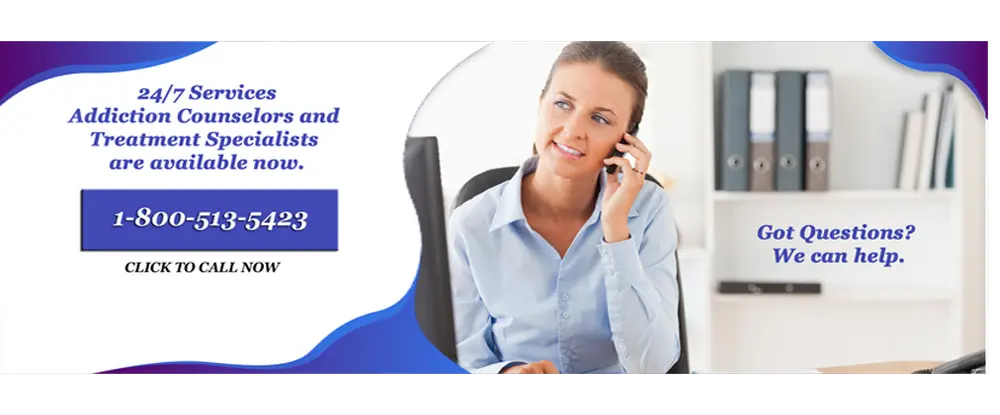
Sources
Medline Plus
Opioid Use Disorder
NIDA
OUD
Opioid Addiction
DHHS Opioids
Erik Epp – Content Author
Summary
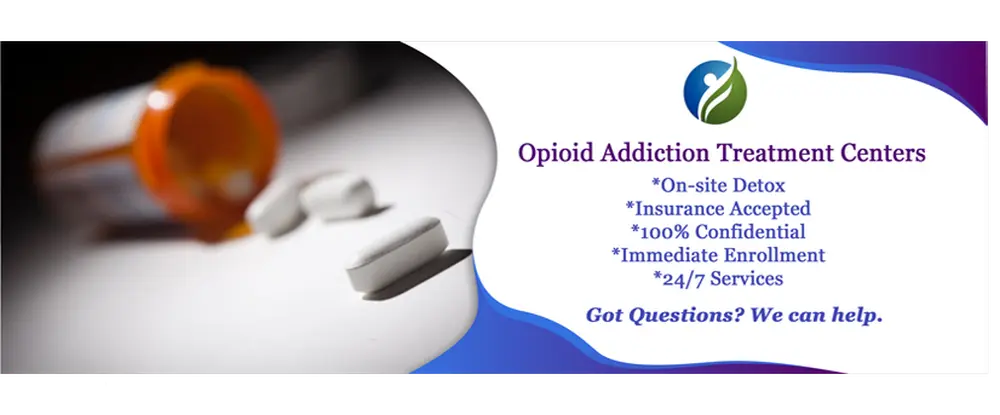
Service Type
Opioid Addiction and Opiate Dependence
Area
Nationwide help in treating opiate addiction
DescriptionWe can help you overcome your addiction to opioids. Give us a call at 1-800-513-5423 today and we can help you find a detox center and rehab that can help you detox from opioids today.
